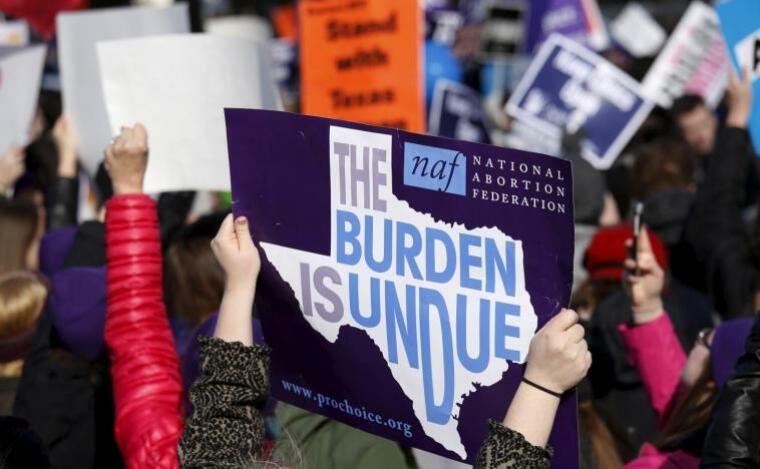Appeals court strikes down Baltimore law requiring pregnancy centers to post 'no abortion' disclaimers

The Fourth Circuit Court of Appeals has struck down a Baltimore City ordinance that required pregnancy centers to post disclaimers that they do not offer or refer women for abortions.
The ordinance requires unlicensed pregnancy centers to post notices that "conspicuously state in English and Spanish that they do not provide nor refer women for abortions or birth control services."
On Friday, a three-judge panel unanimously ruled that the ordinance violated the First Amendment free speech rights of the Greater Baltimore Center for Pregnancy Concerns, a Christian nonprofit that provides prenatal services and counsels women on abortion alternatives.
"The compelled speech at issue here raises particularly troubling First Amendment concerns. At bottom, the disclaimer portrays abortion as one among a menu of morally equivalent choices. While that may be the city's view, it is not the center's," the court stated.
The city has argued the ordinance was necessary to prevent women seeking abortions from being misled by pro-life pregnancy centers and reduce the potential health risks from waiting too long to obtain the procedure.
However, Judge Harvie Wilkinson III, who wrote the court's majority opinion, stated that the city was unable to provide a single example of a woman who entered the Greater Baltimore Center's waiting room under the wrong impression that an abortion could be obtained there.
"What the record does show is affirmative advocacy of abortion alternatives by a lawful non-profit group. None of the public advocacy of alternatives, however, suggests that the center would provide help or assistance in obtaining an abortion," Wilkinson wrote, according to The Hill.
The court also concluded that the ordinance represented an impermissible attempt by the city to "use compelled speech as a weapon to run its ideological foes into the ground."
Friday's decision upheld a district court ruling that found that the ordinance violated the First Amendment's Free Speech Clause because it was not specifically tailored to "accomplish a compelling government interest."
Suzanne Sangree, a lawyer who argued Baltimore's appeal, said that the city was disappointed with the ruling and may appeal to the Supreme Court.
The ruling came as the U.S. Supreme Court prepares to hear a similar case in California. The high court will be deciding in June whether a California law violates the free speech rights of pregnancy centers opposed to abortion by requiring signs about how to obtain state-sponsored services including abortion and contraception.
California Attorney General Xavier Becerra argued that the law, which was upheld by a federal appeals court in 2016, helps inform women about their options. Sangree noted that the city is also considering plans to submit a brief in the California case.
 Christians don't have to affirm transgenderism, but they can’t express that view at work: tribunal
Christians don't have to affirm transgenderism, but they can’t express that view at work: tribunal Archaeology discovery: Medieval Christian prayer beads found on Holy Island
Archaeology discovery: Medieval Christian prayer beads found on Holy Island Presbyterian Church in America votes to leave National Association of Evangelicals
Presbyterian Church in America votes to leave National Association of Evangelicals Over 50 killed in 'vile and satanic' attack at Nigerian church on Pentecost Sunday
Over 50 killed in 'vile and satanic' attack at Nigerian church on Pentecost Sunday Ukrainian Orthodox Church severs ties with Moscow over Patriarch Kirill's support for Putin's war
Ukrainian Orthodox Church severs ties with Moscow over Patriarch Kirill's support for Putin's war Islamic State kills 20 Nigerian Christians as revenge for US airstrike
Islamic State kills 20 Nigerian Christians as revenge for US airstrike Man who served 33 years in prison for murder leads inmates to Christ
Man who served 33 years in prison for murder leads inmates to Christ


 Nigerian student beaten to death, body burned over ‘blasphemous’ WhatsApp message
Nigerian student beaten to death, body burned over ‘blasphemous’ WhatsApp message 'A new low': World reacts after Hong Kong arrests 90-year-old Cardinal Joseph Zen
'A new low': World reacts after Hong Kong arrests 90-year-old Cardinal Joseph Zen Iran sentences Christian man to 10 years in prison for hosting house church worship gathering
Iran sentences Christian man to 10 years in prison for hosting house church worship gathering French Guyana: Pastor shot dead, church set on fire after meeting delegation of Evangelicals
French Guyana: Pastor shot dead, church set on fire after meeting delegation of Evangelicals ‘Talking Jesus’ report finds only 6% of UK adults identify as practicing Christians
‘Talking Jesus’ report finds only 6% of UK adults identify as practicing Christians Mission Eurasia ministry center blown up in Ukraine, hundreds of Bibles destroyed: 'God will provide'
Mission Eurasia ministry center blown up in Ukraine, hundreds of Bibles destroyed: 'God will provide' Church holds service for first time after ISIS desecrated it 8 years ago
Church holds service for first time after ISIS desecrated it 8 years ago Burger King apologizes for 'offensive campaign' using Jesus' words at the Last Supper
Burger King apologizes for 'offensive campaign' using Jesus' words at the Last Supper Uganda: Muslims abduct teacher, burn him inside mosque for praying in Christ’s name
Uganda: Muslims abduct teacher, burn him inside mosque for praying in Christ’s name